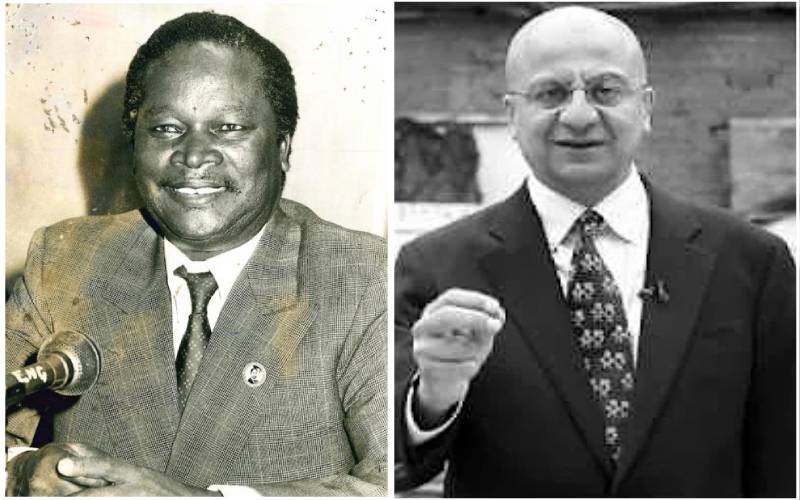
Former Cabinet Minister Nicolas Biwott and Alnoor Kassam. [Courtesy]
In his early thirties, Alnoor Kassam had already built a multi-million financial empire. What was lacking was a bank.
One of his multiple businesses was as the local franchise holder of the Diners Club International, the then biggest credit firm in the country.
Facts First
Unlock bold, fearless reporting, exclusive stories, investigations, and in-depth analysis with The Standard INSiDER subscription.
Already have an account? Login
 The Standard Group Plc is a multi-media organization with investments in media
platforms spanning newspaper print
operations, television, radio broadcasting, digital and online services. The
Standard Group is recognized as a
leading multi-media house in Kenya with a key influence in matters of national
and international interest.
The Standard Group Plc is a multi-media organization with investments in media
platforms spanning newspaper print
operations, television, radio broadcasting, digital and online services. The
Standard Group is recognized as a
leading multi-media house in Kenya with a key influence in matters of national
and international interest.

